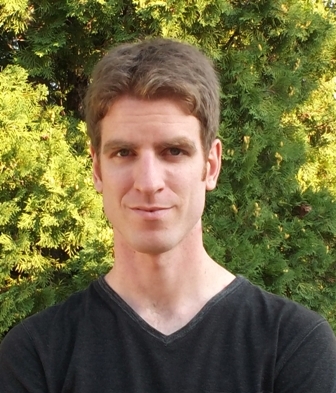International award for Dr. Hoehn

Dr. Logan Hoehn, assistant professor in the department of Computer Science and Mathematics at Nipissing University, has won the inaugural Mary Ellen Rudin Young Researcher Award. The award was presented to Dr. Hoehn during the opening ceremonies of the International Conference on Topology and Geometry, at Shimane University, Matsue City, Japan, last week.
There were 28 applicants vying for the award, hailing from all over the world.
Born and raised in Saskatoon, Saskatchewan, Dr. Hoehn earned his BSc honours degree in Mathematics and Computer Science from the University of Saskatchewan. He participated in two summer research projects in continuum theory under the supervision of Dr. Ed Tymchatyn, and spent a semester studying abroad in the Math in Moscow program. In 2006, he was awarded the Governor General's Silver Medal for highest academic standing overall. Dr. Hoehn obtained his MSc and PhD degrees from the University of Toronto under the supervision of Dr. William Weiss. His PhD thesis, Non-chainable continua and Lelek's problem, was nominated by the mathematics department for the Governor General's Gold Medal award, and for the Canadian Mathematical Society annual Doctoral Prize. He spent two years as a visiting assistant professor at the University of Alabama at Birmingham before assuming his present position at Nipissing University in July 2012.
Dr. Hoehn’s research interests include continuum theory, low-dimensional topology, and topology and dynamics in the plane.
“Nipissing is very proud of Dr. Hoehn’s achievement and wish him a hearty congratulations,” said Dr. Harley d’Entremont, Vice-President Academic and Research at Nipissing. “This prestigious award is a testament to the quality of researchers and educators at this university, and especially in the Math and Computer Science Department.”
The Mary Ellen Rudin Young Researcher Award is named in honour of Mary Ellen Rudin’s achievements and continues her legacy, encouraging the development of young talent in mathematics. The annual award consists of $15,000 to be used as following: $5000 to enable the winner to attend at least three major conferences in topology; $5000 to support travel and living expenses while on a visiting appointment at a leading research centre; and a cash prize of $5000. It is sponsored by Elsevier on behalf of the journal Topology and its Applications.
To find out more about this award, visit: www.elsevier.com/locate/topol
